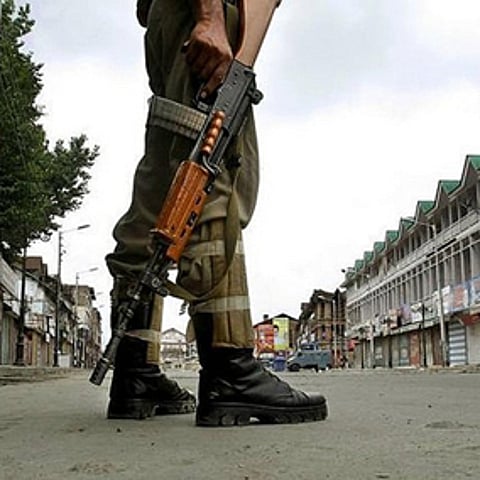In the early 1990s, Kashmir was subject to endless curfews. The Indian Army would capture unoccupied spaces in the Valley and clog them with bunkers and checkposts. Abandoned areas were effortlessly transformed into detention centres, as if the troops were on a fill-in-the-blanks mission. Troops, bunkers and guns soon occupied social conversations and gradually permeated memories too.
On a cold, cloudy and curfewed January day in 1991, my parents decided that our small family would shift temporarily to my uncle's, whose house was just beside ours, on the edge of the main road in Naetpoor, a suburb three kilometres south of Lal Chowk, the centre of Srinagar. Earlier, in harsh winters, I'd always need to make up excuses to slip out to my uncle's house to play with my cousins. And now, though the curfew upset me, it made my ten-year-old self secretly happy too. It was a chance for me to be with my cousins who always came up with new indoor games. But as the January curfew prolonged, our food stocks diminished. The air in my uncle's house became melancholic. All the elders grew pensive. The fun and games were over for us and we gathered in the corners of the house to brood over the situation. For almost a week we ate only potatoes and boiled rice. Soon the entire onion stock was consumed; finally we found ourselves eating boiled rice with a mixture of salt and powdered red-chilli. This was the kind of food that increased my appetite. I learnt that taste actually lay in hunger and not in the food. The hungrier you were, tastier the food was. I still remember how waking up in those nights, I'd feel only the emptiness and rumble in my stomach. I'd keep turning on my sides, sniffing the strange yet lovely smell of the underside of my quilt. I would keep looking at the glowing indicator in the switchbox on the wall, aware that my cousins were doing the same and thinking the same. But in those dark, quiet and angst-ridden moments, we couldn't share with each other what was happening to each one of us.

